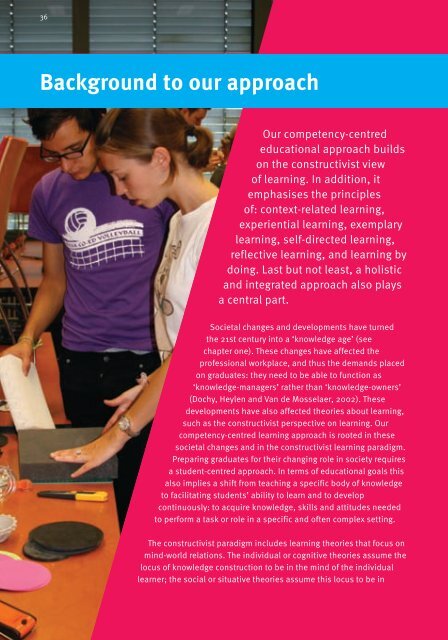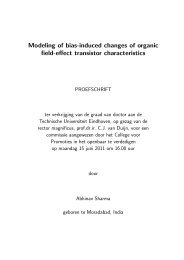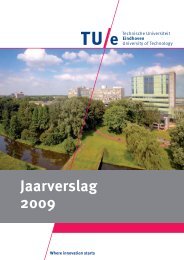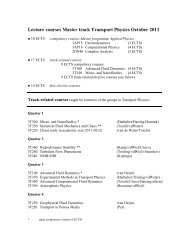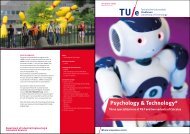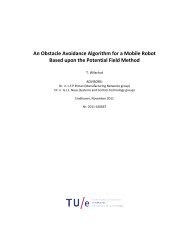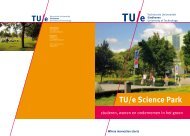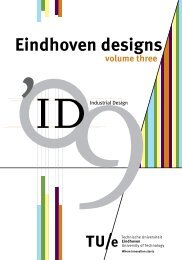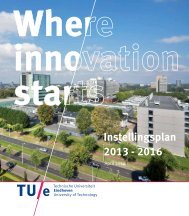Education guide 'Eindhoven designs' - Technische Universiteit ...
Education guide 'Eindhoven designs' - Technische Universiteit ...
Education guide 'Eindhoven designs' - Technische Universiteit ...
Create successful ePaper yourself
Turn your PDF publications into a flip-book with our unique Google optimized e-Paper software.
36<br />
Background to our approach<br />
Our competency-centred<br />
educational approach builds<br />
on the constructivist view<br />
of learning. In addition, it<br />
emphasises the principles<br />
of: context-related learning,<br />
experiential learning, exemplary<br />
learning, self-directed learning,<br />
reflective learning, and learning by<br />
doing. Last but not least, a holistic<br />
Constructivist<br />
perspective on learning<br />
and integrated approach also plays<br />
a central part.<br />
Societal changes and developments have turned<br />
the 21st century into a ‘knowledge age’ (see<br />
chapter one). These changes have affected the<br />
professional workplace, and thus the demands placed<br />
on graduates: they need to be able to function as<br />
‘knowledge-managers’ rather than ‘knowledge-owners’<br />
(Dochy, Heylen and Van de Mosselaer, 2002). These<br />
developments have also affected theories about learning,<br />
such as the constructivist perspective on learning. Our<br />
competency-centred learning approach is rooted in these<br />
societal changes and in the constructivist learning paradigm.<br />
Preparing graduates for their changing role in society requires<br />
a student-centred approach. In terms of educational goals this<br />
also implies a shift from teaching a specific body of knowledge<br />
to facilitating students’ ability to learn and to develop<br />
continuously: to acquire knowledge, skills and attitudes needed<br />
to perform a task or role in a specific and often complex setting.<br />
The constructivist paradigm includes learning theories that focus on<br />
mind-world relations. The individual or cognitive theories assume the<br />
locus of knowledge construction to be in the mind of the individual<br />
learner; the social or situative theories assume this locus to be in


